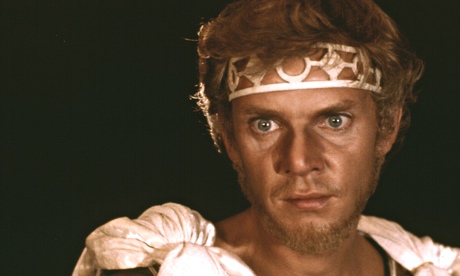
This week is noteworthy, not just for events in Scotland, but because it marks 2,000 years since the accession of Rome’s second emperor, Tiberius. This was the moment when it became clear that Augustus’s reign wasn’t a mere aberration: a cult of his undeniable personality. Once the imperial purple was taken up by his stepson, there was no possibility that Rome could return to its former republican state. A few decades earlier, Brutus and Cassius had assassinated Julius Caesar because he behaved like a dictator. By AD14, Rome was a monarchy in all but name.
Tiberius is the forgotten emperor: people tend to remember his mad successor, Gaius Caligula, and his legendary wish to make his horse, Incitatus, a consul. The eponymous porn film Caligula is still one of Penthouse’s bestsellers, 35 years after it was first released. And we all remember Tiberius’s predecessor, Augustus, not least because we have a month named after him. But Tiberius has somehow slipped away. Only Star Trek, with its customary love for all things Roman, gives him his due: Captain Kirk’s middle name is Tiberius.
It’s not for a lack of evidence from ancient authors. A good chunk of the historian Tacitus’s surviving annals is devoted to Tiberius. And Suetonius, the imperial biographer, gives us just as much juice on Tiberius – and his extremely sordid pool parties – as he does on other emperors. Nor have modern authors overlooked him: he has a starring role in Robert Graves’s I, Claudius. But even then, he somehow eludes us. George Baker, who played Tiberius in the TV adaptation of the book, gave a beautifully nuanced performance as the tormented emperor, forced to divorce the woman he loved to marry one he hated. But it’s not the part he’s remembered for: Inspector Wexford somehow muscled the emperor out of the spotlight.
Tiberius is just as quotable as his stepfather. Sure, Augustus claimed that he was primus inter pares – first among equals – to avoid offending his erstwhile peers. Tiberius was less tactful. Irritated by the obsequious behaviour of Rome’s senatorial class, he derided them succinctly, according to Tacitus, as “men fit to be slaves”. These two phrases sum up the chasm between the two emperors as well as any. Augustus was the master of spin, always turning things to his own advantage. Tiberius was his opposite: awkward, rude and bad-tempered.
Plenty of people have observed that the desire for power should be a bar to acquiring it. If a politician wants to be elected, he is probably the worst person for the job. But following that through to its logical extension suggests that those who would prefer not to take public office would be best suited to it. Tiberius is the perfect rebuttal to that. He had seemingly very little desire for public life. It took him a month to decide to take over as emperor after Augustus died, and he disliked the whole experience so much that he withdrew from Rome to Capri in around AD26.
Although few people reading Tacitus’s admittedly biased account would think Tiberius the perfect emperor, the man he chose to fill in for him when he adjourned to Capri, Sejanus, was eventually accused of plotting against him, and executed. Sejanus’s fall from grace was so abrupt and complete that decades later the satirist Juvenal would cite him as a salutary lesson against praying to the gods for political power.
Contemporary politicians searching for more positive lessons from Tiberius’s reign are unlikely to find much to reassure them. Tiberius held power for 23 years, but he was never popular and never happy. His reputation was demolished by Tacitus, who wasn’t even born until 20 years after Tiberius died, smothered by Caligula, who couldn’t wait any longer to be emperor himself. And – in retrospect – Tiberius isn’t even the most famous figure of his time; that title is clearly claimed by Jesus.
So perhaps we should take the opportunity to mark Tiberius’ 2,000th anniversary by rejoicing in the fact that we usually elect our politicians, and 23 years is too long for anyone to rule. Politicians should remember that however much power they have, they don’t choose their historians, and they can’t control posterity.

